Dr. Sophia Chachula Supports
Languages Spoken
- English
Service Delivery Formats
- In-Person
- Virtual
Videos
Optimizing Fertility and Preparing your Body for Conception with Dr. Sophia Chachula, ND
Frequently Asked Questions (FAQs)
Preparing your body for conception can mean a lot of things. It can take anywhere from a year to a few months. The first step I always recommend is to get a thorough assessment done through bloodwork. This is an important step to check for nutritional deficiencies, metabolic disorders, hormonal imbalances, or any other disorders that might come up, causing a barrier to conception.
I also like to go through a few tests like the CBC (Complete Blood Count), which measures your iron stores, vitamin B 12, and vitamin D. The next step is getting a full thyroid panel, specifically TSH, which is your thyroid stimulating hormone. This is an important test to see if any underlying autoimmune thyroid conditions could be a barrier to conception.
The next test on the list is getting a proper blood test for estrogen, progesterone and testosterone. Estrogen is essential not only when preparing for conception but also for carrying the pregnancy to term. Progesterone levels give us an insight into whether or not you ovulate. Testosterone levels can be elevated in certain hormonal imbalances like PCOS, where we often see elevated androgens. Androgens like testosterone can cause symptoms like excess hair growth on the face, acne and hair loss.
Next, we have LH and FSH. LH is the luteinising hormone, and FSH is called the follicle-stimulating hormone. These two levels tell us about egg health, ovarian health and your egg reserve. LH is two, sometimes three times higher than FSH in certain conditions, causing PCOS. And in reverse, if FSH is two or three times higher than LH, we see potential for premature ovarian ageing or premature ovarian failure, which is also a barrier to conception.
Next, we have fasting insulin and fasting glucose. Combined, these can give us an insight into metabolic disorders and insulin resistance, often seen with hormonal imbalances.
Lastly, MH. The anti-mullerian hormone is tested in fertility clinics but is often left out of the preconception testing. Women need to consider whether or not they should get the test, especially if they have a family history of early menopause or premature ovarian failure.
If you have a family history of autoimmune disorders or inflammatory conditions, and something like inflammatory markers, like CRP or AMA, it might be beneficial to include it in this preconception test.
The earlier you can get something like that done, the better. If you can start thinking about fertility and conception a year before, that would be the most beneficial. If you’re dealing with something like PCOS or endometriosis, it can take a long time to assist your body in getting it ready for conception. Six months would be better than three if you’re lessening the window. No naturopathic doctor practices the same, and no medical doctor practices the same. Sometimes people can get a full and robust fertility preconception bloodwork from their family physicians. But, often, the most left out are the thyroid antibodies.
Food is usually the foundation of any healthcare plan. We can use food to increase our chances of conception. It is important to make sure you have adequate protein and healthy fats. For example, oatmeal is nutrient dense and can be a great part of your diet but lacks protein. Adding nut butters, nuts, seeds, chia seeds, or an egg on the side will help enhance the meal.
Protein provides amino acid building blocks that our bodies need to make hormones like estrogen, insulin, thyroid hormones etc. It also helps stabilise and balance blood sugar. Many hormonal conditions in women: hormonal imbalances, blood sugar imbalances, insulin resistance and metabolic disorders go hand in hand. Keeping your blood sugar stable can help keep your hormones stable as well.
Getting adequate healthy fats is another important piece. We’ve seen in research that low-fat diets can decrease progesterone and estrogen, which are the two most important hormones women need for conception and fertility. Healthy fats include fatty fish, nuts, seeds, avocados and olive oil.
The next part of eating is ensuring your plate contains vegetables and colour. Specifically, dark leafy greens and cruciferous vegetables. This includes kale, Swiss chard, collard greens and spinach, which are rich in magnesium, zinc, vitamin A, vitamin K and folic acid. Cruciferous vegetables include broccoli, Brussels sprouts, cauliflower and kale. Cruciferous vegetables can help your body process and eliminate any excess estrogen. In certain conditions like endometriosis, we may see higher levels of estrogen.
Next, we have antioxidant-rich berries. Antioxidants help improve ovulation timing and preserve egg and ovarian health. Avocados are rich in mono-unsaturated fatty acids and have a lot of fibre. They stabilise and regulate our stress hormone cortisol. Elevated cortisol levels can be a barrier to conception. They also help regulate the estrogen-progesterone balance.
Next up are beans and legumes. Soy, beans and legumes are great sources of fibre and protein. Pumpkin seeds are another superfood containing omega three fatty acids, zinc and magnesium, which help balance the estrogen and progesterone ratio. They also increase blood flow to reproductive organs.
What is also important is making sure you’re eating breakfast, lunch and dinner and not skipping meals. Avoid highly processed and genetically modified foods or a diet full of refined carbohydrates like white bread, white pasta, white potatoes, white rice, and high sugar. High-sugar diets can drive testosterone further up in certain hormonal imbalances that may have increased testosterone, like PCOS
The first one is going to be a prenatal vitamin. But, not all prenatal vitamins are equal. Your prenatal vitamin, the active form of folic acid—5-tetrahydrofolate. Also, look for folate, folic acid and prenatal vitamins that don’t have too many additives, fillers or dyes, and a prenatal vitamin with the non-constipating form of iron.
The next supplement is omega three fatty acids. Fish oils are also anti-inflammatory. They’re used for a wide variety of conditions, especially hormonal imbalances. Not only do they help reduce inflammation, but they also help balance hormones.
DHA is a type of fatty acid that is important for fetal development. Coenzyme Q 10 is another antioxidant that helps increase your energy reserve, improve ovulation, improve the quality of eggs, and preserve egg health. Similarly, melatonin also improves egg health.
Just like with food and testing, everything needs to be individualised. If you have PCOS, you should talk to a naturopathic doctor or physician about inositol. It improves egg health which improves the quality of ovulation and lowers testosterone. You should ideally look for your preconception plan to have anti-inflammatories.
Absolutely. If you do, always let your fertility clinic know you’re seeing a naturopathic doctor. This ensures everyone is on the same page and is conducive to your plan.
Naturopathic doctors within the fertility area would know ways to prepare your body for fertility and help with IVF success.
Often, we have patients who are going through IVF and are looking to prepare their bodies with supplements, nutrition and other guidelines to help boost their chances of success. Acupuncture is another amazing tool an ND can offer to help regulate hormones, support IVF and support fertility in general.
Location(s)
pureBalance Wellness
Mississauga, ON, Canada
Hours of Operations:
- Monday:9:00 AM – 7:00 PM
- Tuesday:9:00 AM – 7:00 PM
- Wednesday:9:00 AM – 7:00 PM
- Thursday:9:00 AM – 7:00 PM
- Friday:9:00 AM – 5:00 PM
- Saturday:9:00 AM – 2:00 PM
- Sunday:Closed
Dr. Sophia Chachula, Naturopathic Doctor in Mississauga
Dr. Sophia Chachula, ND is passionate about helping women optimize their own health and wellness to become their best selves. Dr. Chachula ND’s clinical practice focuses on women’s health and wellness, with a special interest in optimizing fertility, pregnancy, and newborn care, as well as addressing hormonal dysfunctions, including: PCOS, acne, thyroid conditions, and digestive disorders.
Dr. Chachula, ND’s holistic approach combines comprehensive testing, lifestyle management, and natural therapies, including acupuncture, nutritional therapy, and herbal medicine to develop sustainable solutions that are individually tailored to meet her patient’s needs.
Dr. Chachula, ND is a licensed Naturopathic Doctor registered with the College of Naturopaths of Ontario. She is a member of the Ontario Association of Naturopathic Doctors (OAND) and the Canadian Association of Naturopathic Doctors (CAND). Dr. Chachula, ND holds a Doctor of Naturopathy degree from the Canadian College of Naturopathic Medicine and an Honours Bachelor of Science from the University of Toronto.


